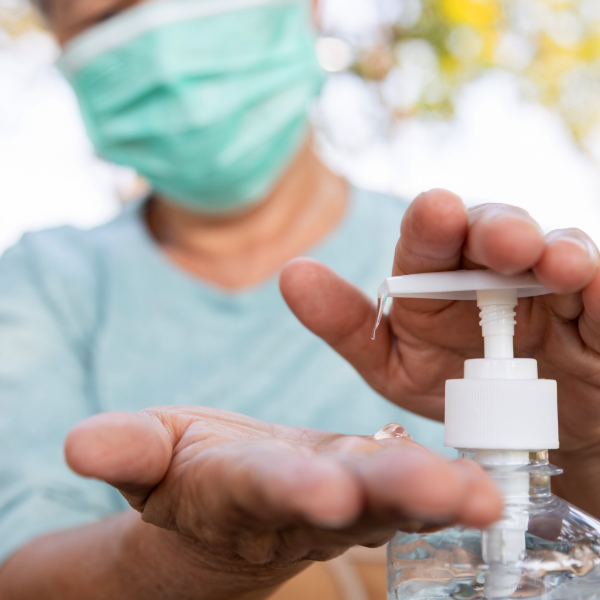What prevents viruses from spreading?
Viruses spread in several ways, including through close contact between people and their droplets transmitted via air when an infected person coughs or sneezes.
You can contract infectious viruses by touching tables, chairs, doorknobs, electronic items, and other highly-touched surfaces.
Most of the viruses are known to survive on various surfaces for up to 9 days but are only infectious for 24 hours. Therefore, you must adopt safe and healthy habits with the least risk of virus transmission.
You can follow the tips below to prevent viruses from spreading and avoid contagious diseases.
Washing Hands
Washing hands with antibacterial soap or liquid hand wash thoroughly for at least 20 seconds is the fastest and most simple way to prevent viruses from spreading and avoiding infectious diseases.
Wash your hands with soap or liquid hand wash for at least 20 seconds before eating or preparing food, after coughing, sneezing, using the bathroom, taking out the garbage, changing diapers, coming back from a social gathering, etc.
Read our detailed article on how to wash your hands correctly to ensure that you stop the spread of various bacteria and viruses.
In addition, if using soap or liquid hand wash is not possible, many healthcare professionals recommend applying a hand sanitizer that kills 99.99% of germs.
Don’t Touch Your Face
Most people, on average, touch their faces more than 20 times per hour. So to stop the viruses from spreading, you must keep your hands away from your eyes, nose, and mouth, especially after you return home from a social gathering.
Frequently touching your face with your hands allows germs to spread and cause infections to enter your body. Learning about germs and how they spread can help protect you and your loved ones against them.
Cover Your Mouth While Coughing or Sneezing
Coughing and sneezing are the most common transmission mediums for spreading germs, viruses, and diseases. When we cough or sneeze, the germs can travel several feet into the air, stick on various surfaces, and stay alive for 7-9 days.
Using disposable tissue paper to cover your mouth and nose while coughing or sneezing is one of the most effective methods to prevent germs and viruses from spreading. However, suppose you don’t have a tissue, then cough or sneeze inside the crevice of your elbow.
While this tip may seem insignificant, it is still one of the most helpful ways to prevent cold & flu from spreading.
Social Distancing & Boosting Immunity
The Covid-19 pandemic has exponentially increased the importance of social distancing in our society. You can easily prevent viruses from spreading by constantly maintaining 6 feet distance between yourself and others and not becoming a carrier.
Even if you find yourself in a public place where social distancing isn’t possible, following some primary public places’ hygiene practices can help prevent you from contracting any virus.
There’s a reason why children fall sick more these days. That’s because they have weak immune systems. Strengthening your immune system by consuming a healthy diet, drinking plenty of water, exercising, and getting enough sleep help you fight viruses.
Clean & Disinfect
Always clean and disinfect objects and surfaces often touched/used by multiple people at home, offices, universities, etc. This includes doors, tables, keyboards, computer mouse, mobile phones, remote controls, sinks, toilets, faucets, etc.
Understand and adopt a daily cleaning habit in your house. Use disinfectant sprays, multipurpose cleaners, and antiseptic liquid to kill 99.99% of germs, bacteria, and viruses from your kitchen, bathroom, and frequently touched objects and surfaces.
In light of the recent outbreak and aftermath of the novel Coronavirus in UAE, striving to stop the spread of viruses is more crucial than ever.
Although there are no guarantees, hand washing, social distancing, and, in general, limiting each individual’s potential exposure to infectious agents are valuable tools for limiting the spread of viruses.
